#John Julius Norwich
Text
Description of Napoleon Bonaparte by the naturalist and explorer, Alexander von Humboldt:
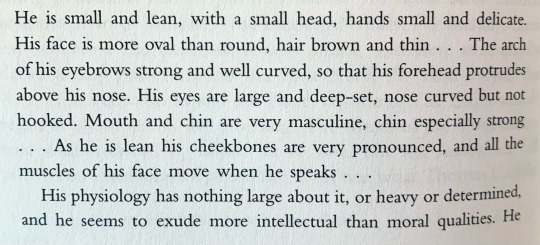

Source: A History of France, by John Julius Norwich
#I love him calling his hands delicate 🥹#humboldt is another notable figure born in 1769#also did anyone else notice the part where he says his looks exuded 'more intellectual than moral qualities'#Alexander von Humboldt#humboldt#Napoleon#napoleon bonaparte#book#book pic#ref#quote#quotes#napoleonic#napoleonic era#frev#french revolution#interesting#France#history#John Julius Norwich
123 notes
·
View notes
Text

Theyre teen royalty. If 16th century Europe was Us Weekly they would always be on the cover.
🩷🩷🩷
I got Some Responses so I thought I'd post the drawing on the back cover 💅💅
#Charles v#Francis i#henry viii#suleiman the magnificent#16th century#History art#Mean girls#Yes this was VERY much based on that promo image of the Plastics whispering!!!#Four princes#John julius Norwich#Contemplated being weird in my own tags for the 5372772th time in a row before remembering im op and i can do whatever i want#Ch*rles is really such a poor little squeak squeak like look at him he is so f**ked up compared to everyone else ❤️#And it's like yeah in part ig i took special care to f**k him up but have u all SEEN the portraits i love him sm
44 notes
·
View notes
Text
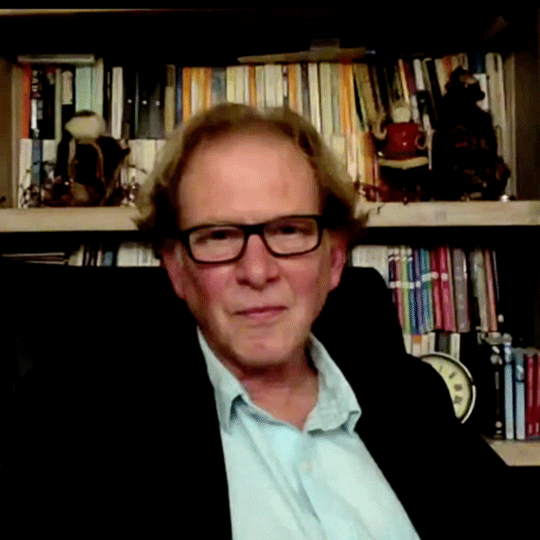

A Christmas post from a Christmas video .
𝔐𝔢𝔯𝔯𝔶 ℭ𝔥𝔯𝔦𝔰𝔱𝔪𝔞𝔰 ❆⋆꙳•☃︎⋆꙳•✩⋆꙳•❅
#James Wilby#Youtube Stuff#Christmas#Will you look at that shelf#John Julius Norwich#The Twelve Days Of Christmas#I wish there was more material like this#A Christmas Post
15 notes
·
View notes
Text
Ritagli
Una delle cose più pratiche che permette di fare un e-reader è sottolineare i testi e avere poi a portata di mano tutti i passaggi che si vogliono conservare.Di seguito, una piccola raccolta di sottolineature, senza un particolare filo conduttore, tra saggi e narrativa, dagli ultimi tre anni circa di letture.
Alberto Grandi, Denominazione di origine inventataQuesto è il paese nel quale due tra…

View On WordPress
#Alberto Grandi#alessandro barbero#Anatolij Kuznecov#Anna Rizzo#Antonio Del Greco e Massimo Lugli#Bill Bryson#Christopher Tyerman#Don Winslow#Erika Fatland#Francesco Guccini#Franco Cardini e Alessandro Vanoli#giobbe covatta#J.R.R. Tolkien#Jacopo Tomatis#Johann Hari#John Banville#John Julius Norwich#Lawrence Wright#libri#Masha Gessen#Matt Ruff#Merlin Sheldrake#Roberto Bolaño#Stephen King#Tiziano Terzani#Valerio Evangelisti#Vera Gheno
3 notes
·
View notes
Text
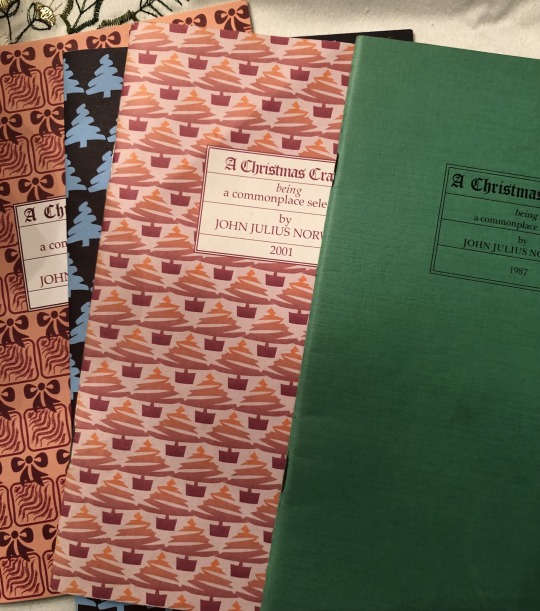
A little light reading
2 notes
·
View notes
Photo

“Lady Diana Cooper and Her Son,” Toronto Star. May 12, 1930. Page 1.
----
CHARMING CAMERA STUDY OF ONE OF ENGLAND’S MOST ATTRACTIVE MOTHERS
The photograph here shows Lady Diana Cooper with her son, John Julius. She was formerly Lady Diana Manners, sister of the Duke of Rutland, and married Alfred Duff Cooper.
#lady diana cooper#viscountess norwich#socialite#actress#the coterie#british aristocracy#photographic study#baby portrait#portrait photograph#john julius norwich
5 notes
·
View notes
Text
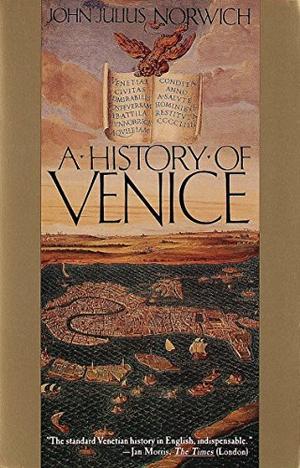
A HISTORY OF VENICE by John Julius Norwich
RELEASE DATE: April 29, 1982
Published in Britain in two volumes, this massive but modest tome claims only to be ""a straightforward record of the main political events of Venetian history, for the general, non-academic reader""--and that's all it is. Aside from the occasional appreciation of a major building, you won't find cultural textures here. Also, as Norwich himself admits, you won't find--with a few exceptions--personalities. What you will find, however, is chattily readable prose, a dry sense of humor (""Eunuchs, as everybody knows, are dangerous people to cross""), and the author's engagingly qualified admiration for the Venetians--their unflagging self-interest, their state-imposed discipline, their secular, non-intellectual activism, their flexible ability to live more or less under a constitution for centuries. Here, then, is Venice from 5th-century beginnings as a refuge from barbarians to a loose, autonomous association of island communities under the Byzantine Empire circa 800 (her ""very submission"" assured independence and greatness); from a trade-centered Republic, fighting wars and pirates, to the builders (circa 1150) of an overseas empire (with a boost from the plundering Fourth Crusade) and a world-power circa 1300; from a Machiavellian peak of war/trade/diplomacy to, after Vasco da Gama (""Overnight, Venice had become a backwater""), a steady decline--with external entanglements and internal ""sickness."" Here, too, are the 100-some doges, the ups and downs of the elitist oligarchy and the Council of Ten; the problems with Popes (Julius II is perhaps the strongest character in the book); the role of the condottieri; the pros and cons re Venice as a police state. (Norwich, dearly something of an elitist himself, argues the relative freedoms and huge benefits of Venice's system.) And here, too, is conspiracy after conspiracy, war after war, a few floods, the Black Death, and the acquisition of a patron saint (""History records no more shameless example of body-snatching""). Most Venice-lovers, of course, will miss the esthetic cross-references. Serious history lovers will look vainly for deep, broad analysis. But, for those who share Norwich's more narrow enthusiasms: a lucid, companionable pageant.
1 note
·
View note
Text
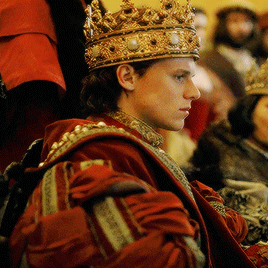



TUDOR WEEK 2023:
Day 1: Favourite Tudor Rivalry
Henry VIII of England, Charles V, Francis I of France
'Despite appearances, [Henry VIII] had never really taken to Francis—who offered, apart from anything else, too much serious competition. For Charles, on the other hand—who was still only twenty—he felt a genuine affection. After his visit to England the young man had written a letter thanking him and Catherine warmly for their hospitality, and in particular for the advice Henry had given him “like a good father when we were at Cantorberi”; and it may well be that the King, who was, after all, already his uncle, did feel in some degree paternal—or at least protective—towards him. What seems abundantly clear is that Charles endeared himself not only to Henry but to all who were with him, in a way that Francis, with all his swagger, had completely failed to do.' (x)
#tudorweek2023#dailytudors#henry viii#francis i#charles v#historyedit#perioddramaedit#the tudors#historian: john julius norwich#my first tudor week!!#**
113 notes
·
View notes
Note
How do you know so much about 19th century France? Are there any resources (such as books and articles) you would recommend for learning about this time period?
Short answer: lots and lots of research, over time, in both long protracted chunks and small surgical lookups. When you read about 19th-century France this much, early on you have to stop every few minutes to look up what was happening at the Bastille or what have you, but after you've done that for a few years, you've built up a sort of sedimentary layer of accumulated knowledge. (Although of course I still get things wrong; I try but I'm not an actual historian!)
Here's a short reading list, although there are a ZILLION books out there that might be useful:
The Aesthetics of Reaction: Tradition, Faith, Identity, and the Visual Arts in France, 1900-1914 by Neil McWilliam (especially good for art movements)
Charles Garnier's Paris Opera: Architectural Empathy and the Renaissance of French Classicism by Christopher Mead
France: A History: From Gaul to de Gaulle by John Julius Norwich
How Paris Became Paris: The Invention of the Modern City by Joan DeJean
The Keys to French Opera in the Nineteenth Century by Herve Lacombe
Robe and Sword: The Regrouping of the French Aristocracy After Louis XIV by Franklin L. Ford
A Tour of French History: From a Province of Rome to the Kingdom of France by Pierre D. Bognon
These aren't all easy grabs off Amazon anymore, but try your local libraries and universities - that's where I found them!
#phantom of the opera#palais garnier#french history#anne pretends to be a real librarian#the phantom library
47 notes
·
View notes
Text
The modern historian John Julius Norwich wrote of Basil: "No lonelier man ever occupied the Byzantine throne. And it is hardly surprising: Basil was ugly, dirty, coarse, boorish, philistine and almost pathologically mean. He was in short deeply un-Byzantine. He cared only for the greatness of his Empire. No wonder that in his hands it reached its apogee".
jesus christ john
7 notes
·
View notes
Text
Sicily: An Island at the Crossroads of History. Chapters 1-3
This book was written by British historian John Julius Norwich. I will attempt to cover the chapters one at a time, other than this first installment, since the chapters are smaller.
1 Greeks
The first true culture we encounter on Sicily is Mycenaean, from around 1600BC. Around 1400 BC, Sicily was absorbed into the Mediterranean trade routes. The Mycenaeans disappeared around 1200BC, no one knows why. There were some tribes that lived on the island: Sicans, Sicels, Elymians, but we know little of them.
Sicily's earliest historical period people were Greeks who had come over to colonize areas of the eastern and southern coast. The first Greek-Sicilian settlement was Gela around 688BC. The next centuries saw the cities build up through Greek art, philosophy, and civilization. But we must recognize that "Greece" was something like the way we consider "Arab" today. It was a concept more than a particular nationality.
The Carthaginians had a footing on the western edge of the island at Marsala and Trapani. Carthage was originally a Phoenician outpost. The Phoenicians were canaanites from the Old Testament. They were a seafaring people, who had established trading outposts all over the Mediterranean. Carthage, modern day Tunis, was one of those cities, which had gained independence in 650BC.
There were occasional clashes between the Greek cities with appeals to Carthage to intervene by whatever city saw itself as undermanned in the looming fights.
Around 400, an agreement was made between Syracuse and Carthage whereby Carthage would limit itself to the western portion of the island.
2 Carthaginians
For the next hundred years, skirmishes continued between Greek Sicily and Carthaginian Sicily, but in 272, Rome captured Tarentum and effectively claimed control over the entire Italian peninsula. During the 200's Sicily was going to have to make a choice between Rome and Carthage.
There were a series of 3 Punic wars (wars between Rome and Carthage) fought between 264 and 146BC. During that time, Sicily became a Roman territory.
3 Roman, Barbarians, Byzantines, and Arabs.
Roman
By 241BC Sicily was essentially run by the Romans. The Greek speakers were still there, but Greece was in no position to influence much on the Island. Carthage was a power during the first part of the 200's, and indeed, Hannibal was causing all kinds of trouble on the Italian peninsula itself but, Carthage was not the influence on Sicily.
The Romans never considered Sicily more than a province... allies... but they were not considered citizens. The important fact was that Sicilians spoke Greek, not Latin. We know relatively little about the events on the island. But here are some 'highlights'... or lowlights... you can decide....
There were several slave revolts on the island. The slave population dangerously outnumbered the free, and they were terribly abused. (Good combo for an uprising.) The first slave war broke out around 139BC, Rome was slow to react since it didn't take the idea of slaves too seriously, and consequently wasn't put down until 132BC, seven years later.
A second slave war broke out in 104BC, but this time Rome was quicker to respond. The second war was ended in 100BC after an epic effort by the slaves.
Gaius Verrus was governor/criminal from 80-70BC, which saw the island suffer terribly under his pillaging. He was excoriated in the Roman Senate by Cicero, who took the case on himself, and Verrus, who saw the writing on the wall, packed up his stuff and amscrayed to Marseille before the trial ended and he was put under arrest.
The final transition of Rome from Republic to Empire left Sicily with a much larger Roman element than before. By decree, all mainland Italians had gained Roman citizenship, but this was not true for Sicily. 6 cities however were included, and their citizens were given Roman citizenship: Taormina, Catania, Syracuse, Tindari, Termini, and Palermo.
Sicily had become one of the most important sources of grain for the Roman empire.
Unfortunately, we know little of Sicilian history for the first 500 years of the Christian era. It seems to have prospered, as evidenced by the quality of the buildings that have survived from that period.
They were largely unconcerned by Constantine's decision to move the capital of the Empire to Constantinople in 330. They were largely unconcerned with the decision to move the western capital to Ravenna in 395.
Constantine's main contribution was the official status of Christianity, which spread rapidly across the island, replacing the old Greek religion.
By the 400's there also seems to have been a large influx of Jewish immigration.
Barbarian
By the late 400s, the barbarians had arrived. Who you callin' barbarian?? I'm sure the barbarians didn't think they themselves were so deficient... after all, who just kicked who's @$$ on Rome's home field? The three "barbarian" tribes of interest to us are the Goths, Huns, and Vandals. Only the Vandals showed any interest in Sicily.
The Goths, under Alaric, had besieged Rome as early as 408.
The Huns attacked Italy by 452, but didn't get to Sicily.
The Vandals however, had gone across Gaul (france), settled in Spain, then crossed into North Africa, attacked Carthage and raided Sicily.
The Roman empire, these days, is considered to have finally succumbed in 476.
Byzantine
In 533, Emperor Justinian launched a campaign to recover the western empire. His general, Belisarius, arrived in Sicily in 535, where he was universally welcomed by the Greek-speaking population. Sicily was once again an imperial province, ruled by a Byzantine governor, hooray! By the middle of the 600's, the Greeks were concerned for their western provinces because of the surge of Islam. Emperor Constans II decided that a Roman empire without a Rome was kind of pointless, so he wanted to shift his capital westward, but after actually seeing the dump that Latin Rome had become, he decided in 663 on the more familiar Greek atmosphere of Syracuse. This should be good for the Greek speaking Sicilians, right? The next 5 years were a nightmare for the Sicilians, due to the extortions and heavy taxes laid on them. This may have gone on for God knows how long, except in 668 Constans was assassinated. His son picked up again and moved back to Constantinople.
Arab
Sicily had been left in peace for some time, but Arab raids were continuing. They now controlled the entire north African coast, and in 827, they invaded Sicily when a local governor, Euphemius, was ousted for an affair with a nun. He responded by proclaiming himself Emperor and then, realizing he didn't have enough muscle to actually make that happen, invited the Arabs to come help. The Arabs came, shoved Euphemius out of the way, and started a slow takeover for themselves.
Palermo fell in 830; Messina fell in 843; Syracuse in 878. By that time, Sicily was effectively an Emirate of the Muslim world.
The Muslim conquest made Sicily a major player in Mediterranean commerce. The Arabs introduced terracing and siphon aqueducts, they introduced cotton and papyrus, melon and pistachio, citrus and date palm and sugarcane. Muslim, Jewish, and Christians all thronged the bazaars of Palermo.
But stability was not part of Arab rule, and there were always tensions between the various factions.
2 notes
·
View notes
Text


redesigned the cover for this motley crew of mean boys and their equally bitchy writer 💅 John Julius Norwich what's good 🔫🤡
References babey 🤡
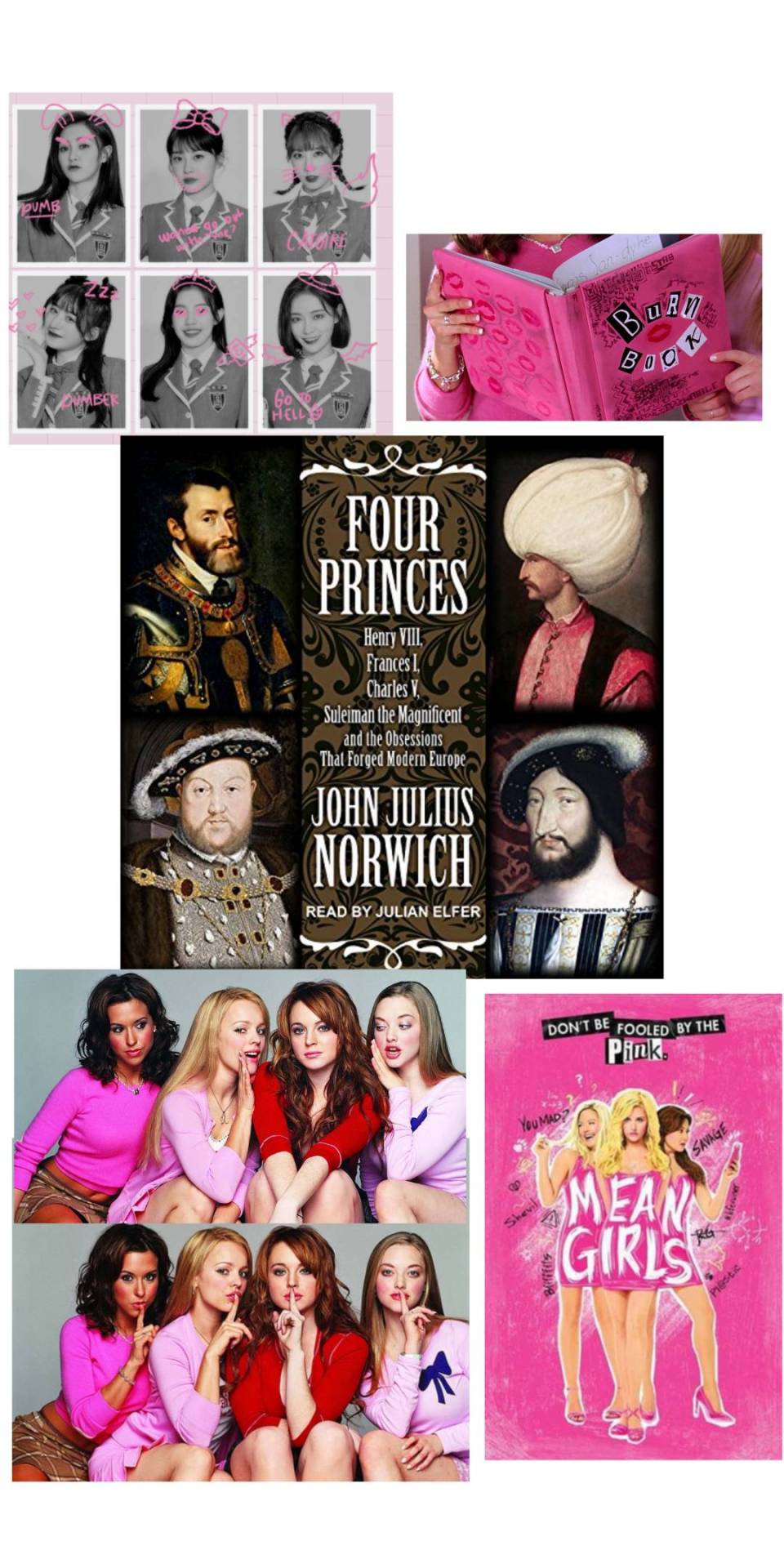
#Charles v#Francis i#henry viii#Suleiman the magnificent#16th century#Four princes#John julius norwich#book cover design#book cover illustration#Book cover art#History art#Tudor history#Early modern era#mean girls#HOT TAKE THIS BOOK SUCKED JJN can catch these hands#Montefiore praised it and it's used on the og cover too so ((n i can SEE why)) like oh????? Takes a bastard to know a bastard. Red flag!!!!#My art
74 notes
·
View notes
Text
I Libri del 2022
Per sognare non bisogna chiudere gli occhi, bisogna leggere - Michel Foucault
1. Carla Benedetti - La Letteratura Ci Salverà Dall’Estinzione
2. Antonio Pascale - La Foglia Di Fico. Storie di alberi, donne, uomini
3. Federico Rampini - Fermare Pechino. Capire la Cina per salvare l’Occidente
4. Mark Kurlansky - Carta. Sfogliare la Storia
5. Marshall G.S. Hodgson - L’Ordine degli Assassini
6. Julian Barnes - Il Senso Di Una Fine
7. Lello Arena - C’era Una Volta. La fiaba un po’ storta di un incontro incredibile
8. John Julius Norwich - I Normanni Nel Sud 1016-1130
9. Neil MacGregor - Il Mondo Inquieto Di Shakespeare
10. Amor Towles - Lincoln Highway
11. Isaia Sales. Teneri Assassini. Il mondo delle babygang a Napoli
12. Ian McEwan - Amsterdam
13. Carlos Fonseca - Museo Animale
14. Hermann Hesse - La Cura
15. Carlos Ruiz Zafon - Il Labirinto Degli Spiriti
16. Massimiliamo Valerii - Le Ciliegie Di Hegel. Una riflessione sull’idea di libertà
17. Fabio Bacà - Nova
18. Gilles A. Tiberghlen - Amare. Una Storia senza fine
19. Andrea Moro - Il Segreto di Pietramala
20. Ilaria Tuti - Come Vento Cucito Alla terra
21. Sylvie Testud - Senza Santi In Paradiso
22. Cesare Pavese - La Casa Sulla Collina
23. Marco Balzano - Resto Qui
24. Orhan Pamuk - Le Notti Della Peste
25. George Robert Sims - Le Avventure Di Dorcas Dene. Una detective nella Londra vittoriana
26. Francesca Stavrakopulou - Anatomia Di Dio
27. Abir Mukherjee - Le Ombre Degli Uomini
28. Guido Barbujani - Come Eravamo. Storia dalla grande storia dell’uomo
29. Richard Powers - Il Dilemma Del Prigioniero
30. Julio Cortazar - Bestiario
Mi sono fermato a 9843 pagine, ad un soffio dal mio obiettivo delle 10 mila. Quest’anno ho letto molti libri che mi hanno regalato, tra cui quello che mi è meno piaciuto, il saggio di Rampini. I saggi favolosi: Kurlansky, quello sull’Ordine degli Assassini preso dopo anni, il saggio sul Corpo del Divino di cui ho parlato sul blog. Sui Romanzi, Fonseca una novità stupenda, un mix stuzzicante di realismo magico e di giallo internazionale, notevolissimo, per struttura, trama e lessico quello di Powers, scoperto tra l’altro come appendice ad una bella chiacchierata. Bei libri italiani, tra nuovi (Bacà interessante, la conferma della Tuti, la scoperta di Moro) e la lettura o rilettura dei classici, che fa sempre sempre bene. per chi volesse altre informazioni, sono pronto a rispondere.
25 notes
·
View notes
Text
Book Backlog Busting Reading Challenge!
Had a productive week this week and three books were finished!
The Time Traveller's Guide to Restoration Britain by Ian Mortimer. FINISHED. Really enjoyed this one. For some reason, the period descriptions here felt more vivid compared to the other books in the series. Great detail as always.
The Great Cities in History by John Julius Norwich (editor). FINISHED. This was a quick and easy read as each chapter about the cities was only 3-6 pages. That said I was a bit disappointed. The breadth was incredible but the depth shallow and there was no sense of "world history" in terms of linking anything together or analysis. Still, I will be combing through the bibliography for choice picks, and it introduced me to cities/cultures I knew nothing about before.
A Crown of Swords by Robert Jordan (Wheel of Time #7). FINISHED. I can sense the series is starting to drag a bit here - it felt particularly egregious that the weather plotline resolution was put off for yet another book. I'm still enjoying the series though and especially the Rand/Min interactions in this book, which were adorable and actually felt like a normal relationship.
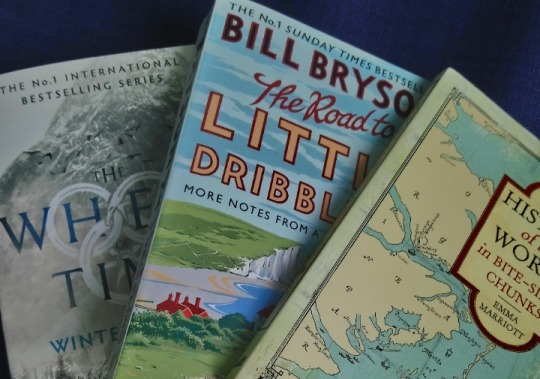
Upcoming books!
A History of the World in Bite-Sized Chunks by Emma Marriott. Sticking to the world history and "rummaging through the bibliography for good finds" theme... I'm also trying to get through some of the shorter books on my list - this one is under 200 pages.
The Road to Little Dribbling by Bill Bryson. I've read lots of Bryson's works and really enjoy his ability to convey his enthusiasm about learning new things and his sense of humour, so I'm sure I will enjoy this one too.
Winter's Heart by Robert Jordan (Wheel of Time #9). Not sure if I will get round to this one as I haven't gotten that far into Path of Daggers yet, but Path of Daggers is very short by WoT standards, there's a fairly good chance.
96 books remaining!
#book backlog busting reading challenge#bbb challenge#books#history books#reading#reading challenge#reading backlog
6 notes
·
View notes
Text
Books I Have Read in the Past Six Months and Enjoyed
(Links to bookshop.org, not currently affiliate links)
Absolute Monarchs: A History of the Papacy by John Julius Norwich - Quite fun and informative. By necessity, he has to breeze over some of the popes because either a) it's so far back, we know jack and shit about them, or b) they're boring, and we need space to talk about Renaissance popes behaving badly.
(The Renaissance Catholic Church behaving badly is currently one of my major interests.)
Paladin's Grace/Paladin's Strength/Paladin's Hope by T. Kingfisher - I love Ursula Vernon's characters and worldbuilding, and it's delightful to return to the world of the Temple of the White Rat. She also has some of my favorite takes on paladins in fiction.
The Cardinal's Hat and Conclave 1559 by Mary Hollingsworth - Remember how I said the Renaissance Catholic Church behaving badly is one of my major interests? Allow me to introduce you to Ippolitto II d'Este, grandson of Pope Alexander VI (aka Rodrigo Borgia).
Not sure why The Cardinal's Hat isn't on bookshop.org, but you can find it elsewhere. It covers Ippolitto's early career up until shortly after he received his cardinal's hat. Conclave 1559 covers a papal election Ippolitto was a major figure in that went on for months. Both are very good reads.
Among Thieves by Douglas Hulick - Also not listed on bookshop.org for some reason. I kriffing love weird world-building, and our protagonists stumbling headlong into problems and making problems for other people while they try to figure out what's going on, and this book has both.
The Cardinal's Blades by Pierre Pevel (omnibus with the whole trilogy; caveat: I haven't read the whole trilogy yet, just the first book) - Dragons vs. Cardinal Richelieu. We focus far, far more on the people he's using to fight the dragons than the cardinal himself, which allows the writer to get in some amazing twists. None of them are forced, they just rely on us not being told everything because the character whose pov we're in hasn't been told everything.
The book does hop through multiple points-of-view, so if you're bad at keeping track of names, you may not enjoy this as much as you might otherwise.
3 notes
·
View notes
Photo

Walking in the Rain by Bob C Images While visiting Wells Cathedral, I happened upon an incredible street with amazing architecture. Vicars' Close, in Wells, Somerset, England, is claimed to be the oldest purely residential street with original buildings surviving intact in Europe. John Julius Norwich calls it "that rarest of survivals, a planned street of the mid-14th century". As you can see it was raining but I waited around until someone started walking down the street with an umbrella. (Edited in Lightroom, Photoshop and Topaz) https://flic.kr/p/2ojnVWj
3 notes
·
View notes